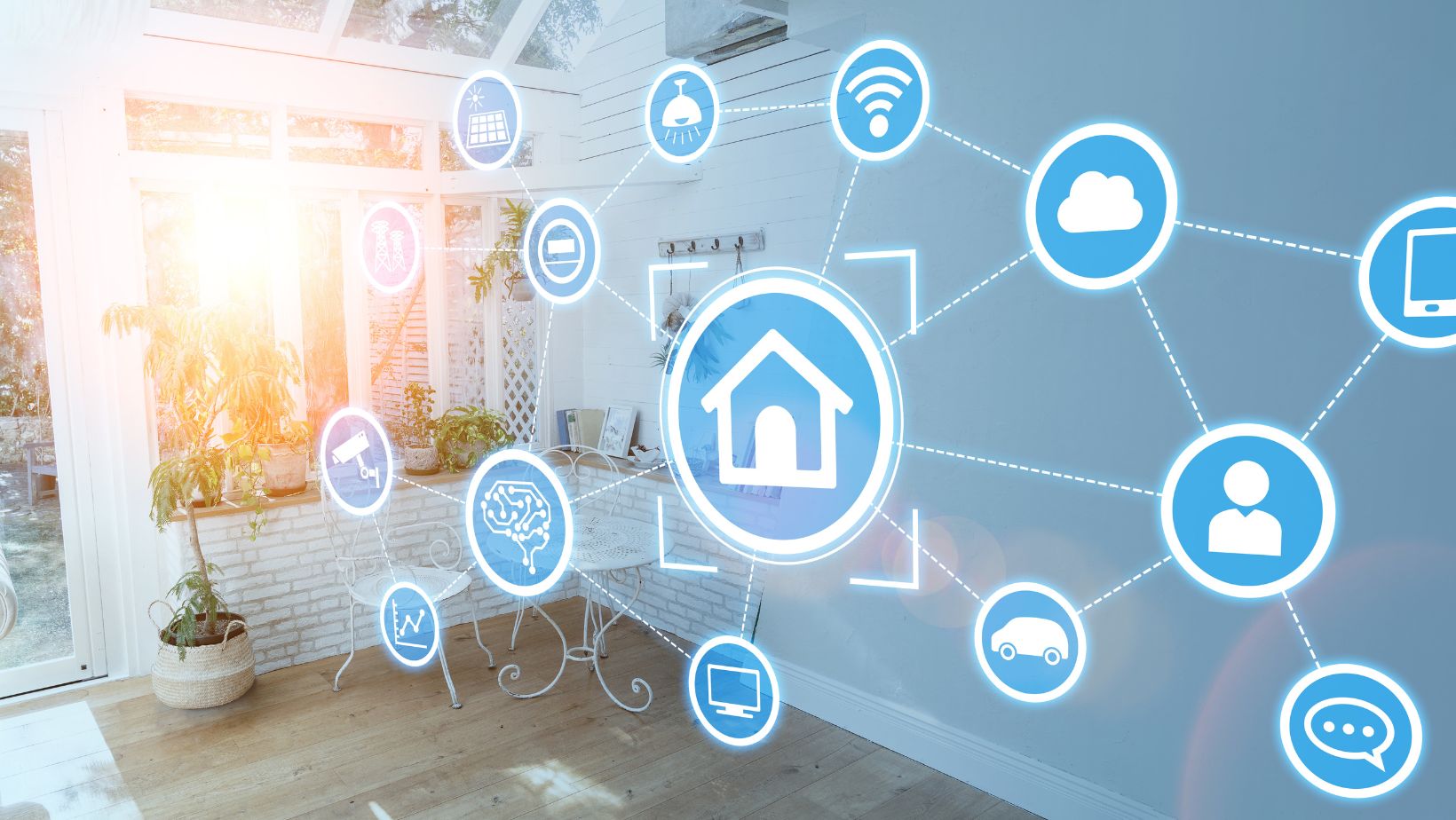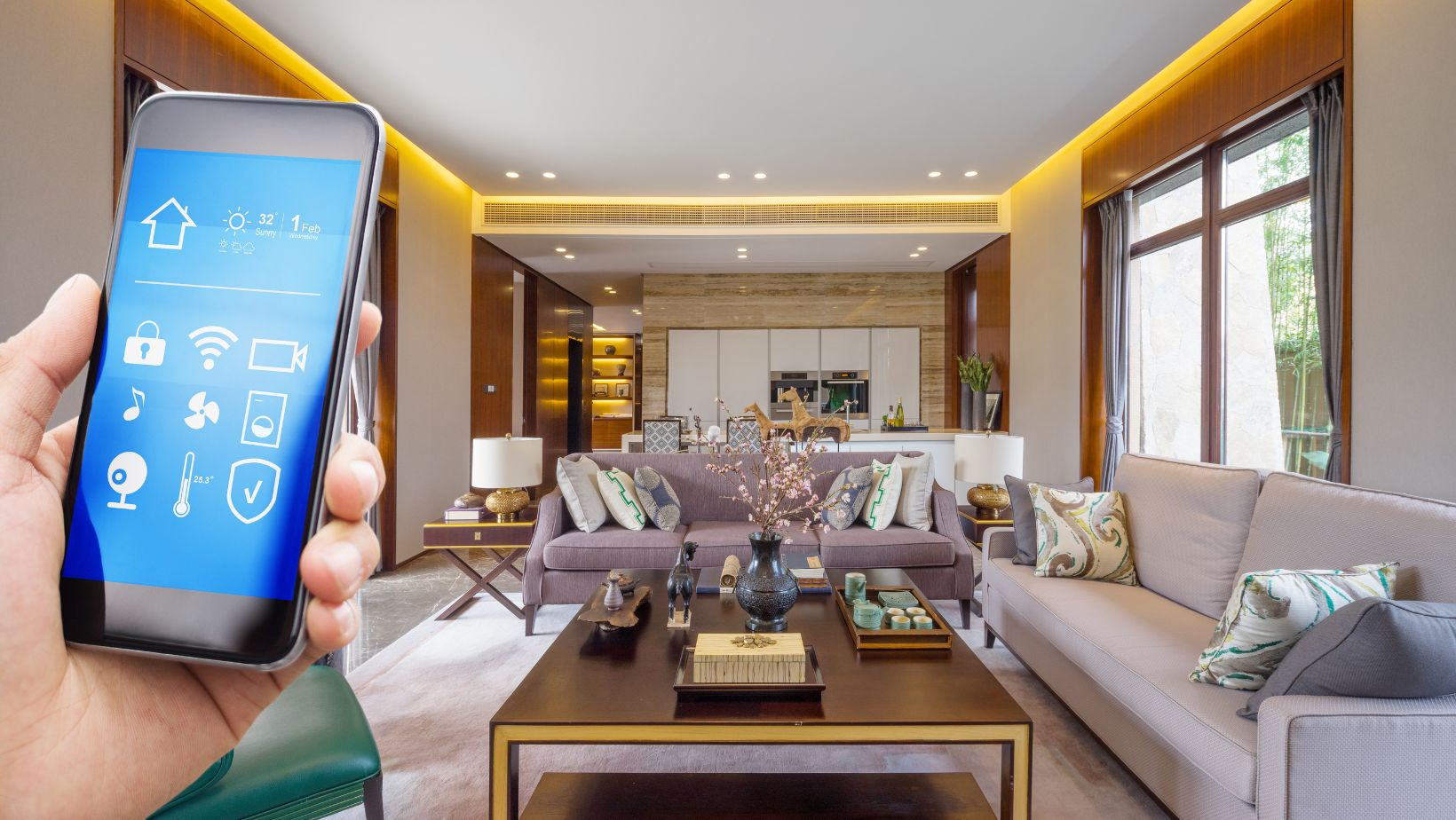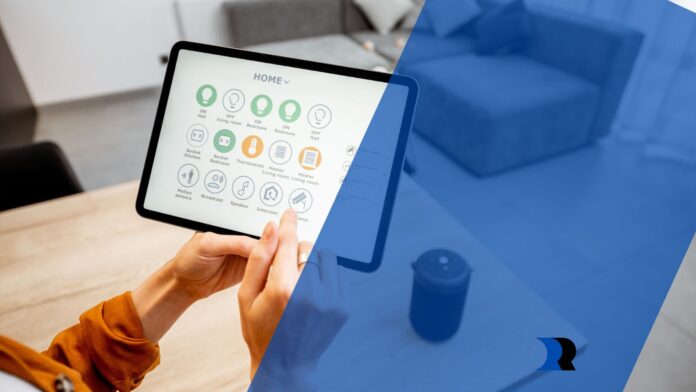In an era where technology evolves at lightning speed, a ‘smart home’ is no longer a futuristic dream but a present reality. As we embrace the digital age, our homes are becoming intelligent, learning from our habits and adapting to our needs, providing us with a level of convenience and efficiency previously unimagined.
Smart homes represent a significant leap forward in how we live and interact with our surroundings. A smart home is a residence that uses internet-connected devices to enable the remote monitoring and management of appliances and systems, such as smart light bulbs, smart thermostats, etc. These technologies, driven by the Internet of Things (IoT), allow for a seamless, automated living experience where devices can communicate with each other in an integrated manner.
AI plays a crucial role in enhancing smart home technologies. With AI, smart home devices can learn from your habits and make decisions on your behalf. For instance, a smart thermostat can learn your schedule and adjust the temperature automatically to save energy when you’re not home. Similarly, AI-powered voice assistants like Amazon’s Alexa or Google Assistant can control smart home devices using voice commands, making it easier for users to manage their homes.
Smart lighting is another essential component of a smart home. With smart lights, you can remotely control the brightness and color of your lights using an app on your smartphone. Some smart lights can even sync with your music, TV, or games for immersive experiences. Beyond convenience, smart lights also contribute to energy conservation as they consume less power and last longer than traditional bulbs.
The rise of smart homes has created many career opportunities in the IoT and smart home industry. There is a growing demand for skilled professionals in this field, from software developers and data scientists to product managers and sales professionals.
This blog post aims to explore the exciting world of smart homes, highlighting key technologies like the Internet of Things and AI automation and discussing the promising IT career path in this rapidly evolving field.
What is Smart Home Technologies
As we delve deeper into the realm of smart homes, it’s essential to understand the core technologies that make our homes’ smart.’ The Internet of Things (IoT) is a key player in this space, enabling seamless connectivity and automation across various home devices.
IoT refers to the network of physical objects embedded with sensors, software, and other technologies to connect and exchange data with other devices over the Internet. In the context of smart homes, these ‘things’ could be anything from light bulbs and thermostats to security cameras and appliances.
Smart home technologies leverage IoT to create a cohesive system where devices communicate with each other and the user, enhancing convenience, efficiency, and security. For instance, a smart thermostat can ‘learn’ your daily routine and adjust the temperature accordingly to save energy. Meanwhile, smart security systems can alert you to potential threats and allow you to monitor your home remotely.
AI automation plays a crucial role in maximizing the potential of smart home technologies. By incorporating AI, these devices can learn from user behavior, making intelligent decisions that enhance convenience and efficiency. For instance, an AI-powered smart refrigerator can track your food consumption habits, suggest recipes based on available ingredients, and even order groceries when running low.
The rapid advancement of smart home technologies has opened up many career opportunities in the IoT field. From engineering and software development to data analysis and product management, professionals with diverse skill sets are needed to drive innovation in this sector.
Artificial Intelligence and AI Automation in Smart Homes
Artificial Intelligence (AI) has emerged as a transformative force in the world of smart homes, bringing about a new level of automation that enhances convenience, efficiency, and security. As we continue to explore the exciting landscape of smart home technologies, it’s crucial to understand the role and impact of AI.
At its core, AI refers to the simulation of human intelligence processes by machines, especially computer systems. In the context of smart homes, AI enables devices to learn from user behavior and make intelligent decisions. For instance, an AI-powered smart thermostat can ‘learn’ your daily routine and adjust the temperature accordingly, reducing energy consumption and saving costs.
AI automation takes this concept a step further, allowing smart home devices to operate independently based on the data they collect. With AI automation, your smart home can adapt to your lifestyle and preferences, providing personalized experiences that enhance comfort and convenience. For example, an AI-enabled lighting system can adjust the brightness and color of lights based on the time of day or your mood, creating the perfect ambiance for every situation.
Smart lighting systems are a prime example of AI automation in smart homes. These systems use AI to ‘learn’ your lighting preferences and automatically adjust the lights based on various factors like natural light availability, time of day, and room occupancy. Some advanced smart lighting systems can even sync with your entertainment system, adjusting the lighting to match the mood of the movie or music you enjoy.

The rise of AI automation in smart homes has also created ample career opportunities in the IoT industry. With the demand for AI skills skyrocketing, there’s a growing need for professionals who can design and manage AI-enabled smart home systems.
Technologies, we can look forward to a future where our homes respond to our commands and anticipate our needs, offering unparalleled levels of convenience and comfort.
The Future of Smart Homes
As we journey through smart home technologies, it’s clear that the future is promising. Our homes are becoming more intelligent and responsive with advancements in artificial intelligence (AI), the Internet of Things (IoT), and automation. But what does the future hold for smart homes? Let’s explore.
One key trend shaping the future of smart homes is the integration of AI with IoT devices. AI-powered IoT devices can learn from user behavior and make decisions on their behalf, enhancing convenience and efficiency. For instance, an AI-enabled HVAC system can adjust the temperature based on your daily routine or weather conditions, reducing energy consumption and costs. Similarly, an AI-powered security system can identify potential threats and alert you in real-time, ensuring your home’s safety.
Another emerging trend is the rise of voice-controlled smart home systems. With the popularity of virtual assistants like Amazon’s Alexa, Google Assistant, and Apple’s Siri, voice control is becoming a standard feature in smart homes. It allows users to control their smart home devices using voice commands, making it easier to manage their homes.
Smart lighting is also evolving, with advanced systems offering more than remote control. Future smart lights can adjust the lighting based on your mood, activity, or even the movie you’re watching. Additionally, as energy conservation becomes a pressing concern, we can expect future smart lights to be more energy-efficient and eco-friendly.
IT Career Opportunities in the IoT and Smart Home Industry
As these fields of IOT and Smart home technologies continue to grow, they offer diverse IT roles for professionals with varying skills and expertise. Explore the exciting career prospects in the IoT and smart home industry.
One prominent IT career path in this field is IoT Solutions Architect. They are responsible for designing and implementing IoT solutions. They work on hardware development, software programming, and network architecture. A solid understanding of electronics, programming languages, and networking protocols is essential for this role.
Then there’s the role of IoT Data Analysts and IOT Data Scientists. With IoT devices generating massive amounts of data, there’s a growing need for professionals who can analyze this data and derive actionable insights. These roles require proficiency in data analysis tools and techniques, machine learning algorithms, and statistical modeling.

Another promising IT career path lies in cybersecurity. As mentioned earlier, security is a significant concern in IoT and smart homes. Cybersecurity experts are needed to ensure the secure transmission of data and protect against cyber threats. This role demands a strong knowledge of encryption protocols, firewall configuration, and ethical hacking techniques.
For those with a knack for problem-solving, a career as an IoT Solution Architect could be rewarding. These professionals design comprehensive IoT solutions that meet specific needs, ensuring the seamless integration of various IoT devices and systems. This role requires a broad understanding of IoT technologies, systems architecture, and business requirements.
Additionally, the rise of smart homes has led to a demand for professionals specializing in home automation. Home Automation Engineer installs, configures, and troubleshoots smart home devices, ensuring they function optimally and meet the homeowners’ needs.
Furthermore, there are opportunities in sales and marketing as companies seek professionals who can effectively promote their IoT and smart home products. Roles like Product Managers and Marketing Strategists require a deep understanding of the industry trends, customer needs, and competitive landscape.
Conclusion
The advent of AI and AI automation has revolutionized smart home technologies, making our homes more intelligent and responsive. Whether you’re planning to upgrade your home with smart devices or are considering a career in the burgeoning field of IoT, understanding the role of AI in smart homes is key. As we continue to embrace these emerging Smart home technologies, we can look forward to a future where our homes are not just smart but truly intelligent, offering unparalleled convenience, efficiency, and security.


